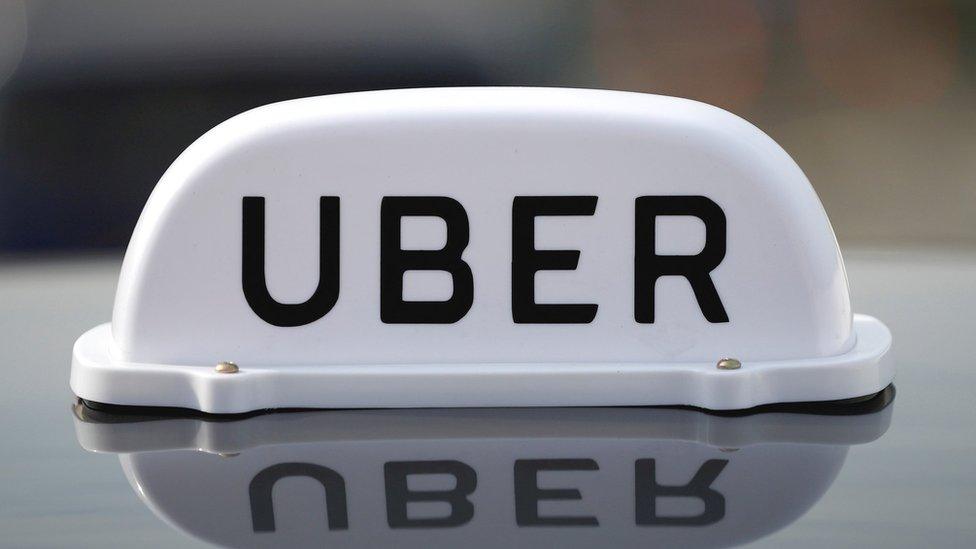Tech Tent: What is Uber's route to profit?
- Published

It is losing huge amounts of money with no clear path to profitability, a goal which the company itself admits it may never reach.
On this week's Tech Tent, we ask why Uber was valued at $82bn (£63bn).

As Uber makes its debut on the New York Stock Exchange, its valuation may be less than the $100 billion that was talked about just a few weeks ago.
But it still represents a brave bet on stellar growth over the coming years.
Think of it like this: you call up an Uber and get in to find the driver has no clear idea of how long the journey will take, what the best route is or how much it might cost.
That is the position potential investors find themselves in, after wading through a prospectus full of ambitious statements of intent about capturing a sizeable chunk of markets worth $12trillion, but short on details about how to get there.
Eileen Burbidge of Passion Capital, an investor in early stage technology firms, admits she struggles to see the case for buying Uber at the current valuation.
But she says most investors will be taking a very short-term view: "They're thinking, if I get into this stock, if I buy this stock at a certain price, how long do I hold it for me to sell and make some kind of a return?"
As for the longer-term view and Uber's route map to profitability, she tells us that is murky. Making money from ride-sharing probably means taking the drivers out of the equation.
Uber has spent big sums on research into driverless cars. It currently has little to show for it apart from a fatal crash that damaged its reputation.
With any move to an autonomous fleet some years away, it has to keep drivers happy in the meantime. Demonstrations in a number of cities this week are evidence that this will be a challenge.
At a rally in Uber's home town of San Francisco, one driver was not impressed with what he had heard about the initial public offering (IPO), which will make billions for the firm's founder and backers, but not so much for the drivers.
"The math doesn't make sense man. This is Silicon Valley nonsense. If you're a viable company worth 90 billion, why can't you pay your employees?"
The Uber bulls will point to the scepticism that surrounded the stock market debuts of Amazon, Google and Facebook, and the eye-popping returns that those companies eventually delivered to shareholders.
Eileen Burbidge says Uber seems to think that its sheer scale will eventually earn it huge profits, even if that is not from its core taxi-hailing business.
"I think it believes that it will have distribution, reach and market attention and market share in such a large global footprint, that over time it will come up with areas of the business that will be profitable, and that will make the company a growing and sustainable concern."
In other words, don't worry, something will come up... even if we have not thought of it yet.
Also on this week's podcast:
As Google launches a budget version of its Pixel smartphone, we discuss whether this finally signals a breakthrough for a device which has won great reviews but modest sales
From skin for robots, to a device to keep vaccines cool in developing countries. We meet the young engineers trying to turn great ideas into viable businesses
- Published10 May 2019
